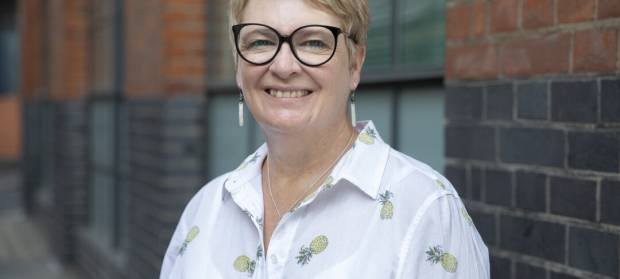Yesterday’s launch of the National Disability Strategy has left me with mixed feelings.
Over the last year myself, colleagues from Mencap, and most importantly people with a learning disability themselves, have engaged with the Minister for Disabled People and officials seeking to ensure that people with a learning disability can look at this strategy and see a vision for a better future and a pathway for how they can work with the Government to achieve our ambitions to transform people’s lives.
The very fact that we now have a National Disability Strategy is a big step forward from the piecemeal ways of working of the past. Greater coordination of all government department’s work can only be a good thing, especially given that each has its own pressures, demands and asks. It does make me wonder why we had to wait this long for a cross-departmental approach as it seems only sensible to take a broad approach to meet the needs of such a diverse group of people.
When I received a copy of the strategy I was encouraged by the Prime Minister’s forward. He spoke about the inequalities that disabled people face and of the need for action to open opportunities and tackle barriers. But it was from then on that I began to feel a little deflated.
It became clear as I read on that this document was not really a ‘strategy’ but rather a plan or a checklist of some actions with vague commitments for the future. And the language had changed from the promised ‘ambitious’ and ‘transformative’ strategy to phrases like ‘action plan’.
I cannot help but feel that a huge opportunity has been missed to set out a truly ambitious and transformative vision for making the UK the best place for disabled people to live happy and health lives.
Added to this sense of lost opportunity is the rapid descent into discussions on the number of pledges and funding commitments in the strategy. While money is important, a visionary strategy also needs to be about so much more. It should be focused on people and transforming their lives. We should be talking about how this strategy will or will not enable the Government to empower disabled people and provide the right environment for people to choose the assistance that is good for them and the support to help them to build on their own capabilities. This is no better demonstrated than in this strategy’s failure to address some of the biggest issues facing people with a learning disability today; namely health inequality and social care reform.
We know that people with a learning disability die on average 23 years and 27 years younger than the general population for men and women respectively. But the strategy fails to mention the NHS Long Term Plan, especially given that improving the health outcomes is for people with a learning disability is a key focus of this work. Rather the strategy simply mentions two ongoing pieces of work, the Learning Disability Mortality Review, and the piloting of the Oliver McGowan mandatory training.
Even more concerning is the near absence of any mention of social care reform. As my colleague Ismail Kaji said in his response to the strategy:
“And for many disabled people, social care support is really important to live a happy, healthy and independent life. It’s very worrying there is not enough focus on this in the Government’s strategy, especially as almost 70% of people with a learning disability had their social care cut when they needed it most during lockdown.”
I agree with Ismail, social care should be front and centre of this strategy. For many people the provision of social care not only provides support for day-to-day tasks but empowers individuals to access the community, developing skills to improve independence and employment chances, engage in their community, and lead a healthy life. So in fact, many of the areas the strategy looks to improve can only be truly addressed once we have invested in and fixed the social care system.
More of a focus on a clear vision could have been the first step in changing the narrative associated with many disabled people’s lives away from endless battles with ‘the system’ to one based on co-production and empowerment through listening and support.
All of this has left me with a number of questions. Could we have done more to press the Government towards articulating a more powerful vision? Would any additional pressure have resulted in a better strategy? Is it better to have something to build on then no strategy at all?
After some reflection, and listening to the initial reaction of many of the people Mencap supports, and our colleagues with a learning disability, the conclusion I have come to is that having a National Disability Strategy is a milestone. But milestones are not an end point. It must be followed up with tangible action and change and disabled people themselves must be the ones who hold ministers to account. It has made me realise that no one document or launch will solve the deep seated issues disabled people face. Our job now is to help and press the Government to build on the strategy, and develop a bigger, clearer vision and most importantly ensure that disabled people are at the front and centre of this discussion, co-producing this work. We need an ambitious and bold vision that Government, local authorities, the third sector, private sector and the public will stand behind. Only then can we truly say that we have a strategy that will deliver positive change.

 Edel Harris
Edel Harris